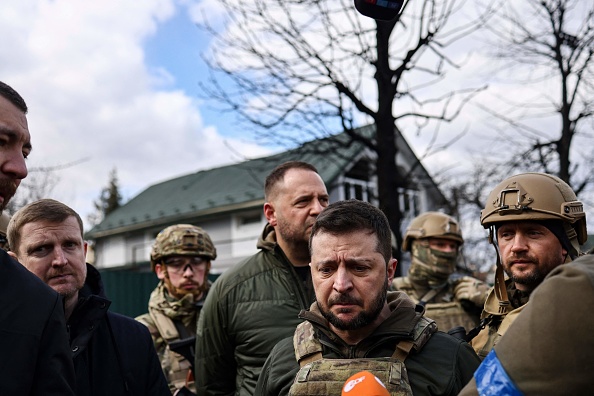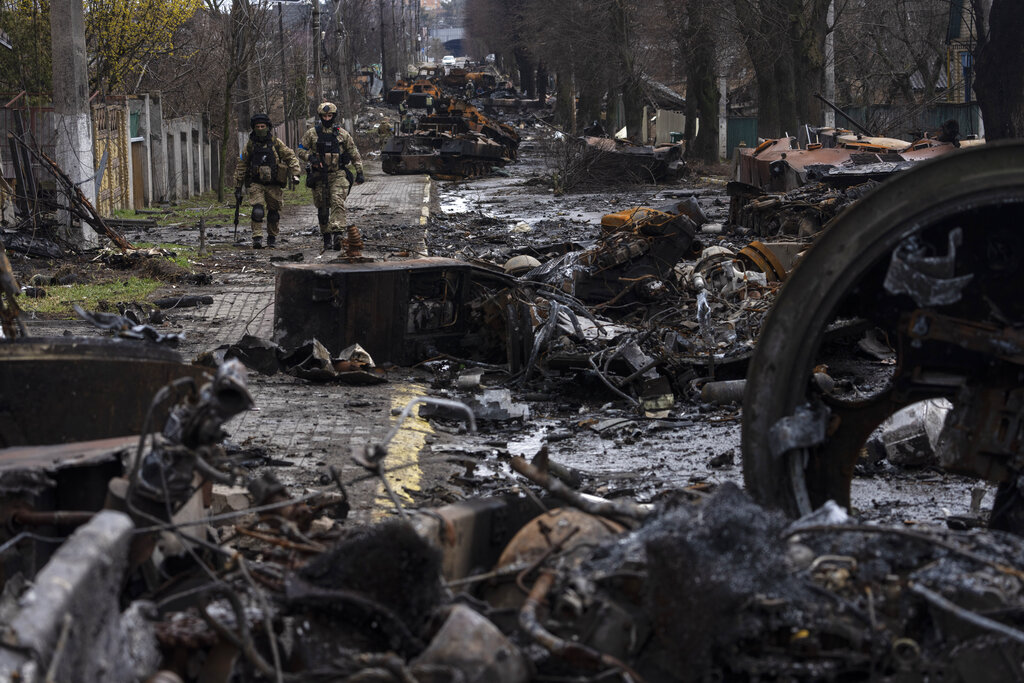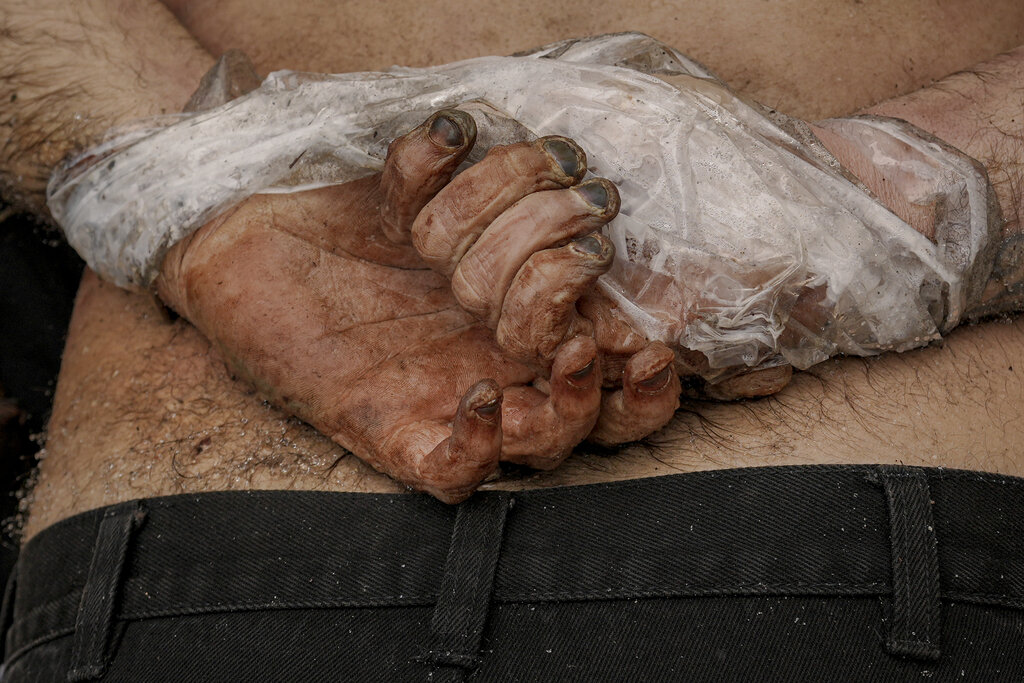New evidence of atrocities committed against Ukrainian civilians prompted outrage around the world Monday, forcing Western leaders to threaten even more punishing sanctions, including a complete lockout of Russia’s vital gas industry.
The threat came after an all-out assault in Bucha, a suburb northwest of Kyiv. The city was completely charred and littered with the corpses of civilians on Sunday.
A man in a bright blue fleece was found hunched over the steering wheel of a crushed car at an intersection in the center of town, the New York Times reported. Another was found on his back on the side of the road with a single bullet through his head. His mangled green bicycle laid beside him. Several civilians had been stuffed into sewers, while others were found in mass graves.
Renewed allegations of war crimes came after multiple corpses were found with their wrists bound behind them and other signs of torture.
RUSSIAN DEATH TOLL IN UKRAINE SURPASSES 18,000: UKRAINIAN ARMED FORCES
Ukrainian President Volodymyr Zelensky toured the area on Monday and was visibly emotional while viewing the carnage. He said he found it “very difficult to talk when you see what they’ve done here.”

The hellscape in Bucha was similar to what was seen in Irpin and Hostomel.
So far, more than 410 dead civilians have been found in what Ukrainian officials are calling a “planned genocide.”
During his overnight speech, Zelensky urged Russians not to look away from the crimes allegedly being committed by their army against civilians in his country.
“I want every mother of every Russian soldier to see the bodies of the killed people in Bucha, in Irpin, in Hostomel,” he said.

Linda Thomas-Greenfield, the United States’s ambassador to the United Nations, said Monday that the U.S. and its allies will seek to suspend Russia from the U.N. Human Rights Council.
“The images out of Bucha and devastation across Ukraine require us now to match our words with action,” she said.
The U.N. Security Council denied a request by Russia to meet Monday to discuss what Moscow called “provocation by Ukrainian radicals” in Bucha.
Following the release of pictures from the weekend massacre, Polish Prime Minister Mateusz Morawiecki called the actions of the Russian army “acts of genocide,” while French President Emmanuel Macron called the images “unbearable” and said they showed “very clear signs of war crimes.” Spanish Prime Minister Pedro Sanchez said the alleged crimes should be brought before an international court, while British Prime Minister Boris Johnson’s spokesman Max Blain said the “barbaric” killings showed “despicable attacks against innocent civilians, and they are yet more evidence that Putin and his army are committing what appear to the war crimes in Ukraine.”

The global outrage over Russia, which included calls for a cutoff of Russian gas, was met with broad denials from the Kremlin, which accused the West of doctoring the pictures to punish Moscow unfairly.
Zelensky, in his speech, also took aim at the “indecision” of Western leaders who have resisted tougher penalties against Russia and name-checked the former leaders of Germany and France to come to Ukraine and see the devastation for themselves.
“I invite Ms. [Angela] Merkel and Mr. [Nicolas] Sarkozy to visit Bucha to see what the policy of 14 years of concessions to Russia has led to,” Zelensky said.
Charles Michel, the president of the European Council, tweeted that European Union ambassadors will meet Wednesday to discuss another set of sanctions against Russia. A NATO defense meeting is also scheduled to take place Wednesday.
Despite strong comments condemning Russian forces, the EU remained divided on just how harsh a new round of sanctions should be and what a boycott of Russian gas would mean for the economy.

In 2021, 38% of the natural gas used by the EU came from Russia, according to research firm Bruegel. Some countries, such as Lithuania and Poland, have been gradually reducing their reliance on Russian gas, but in others, the dependency has been growing. A boycott of Russian gas could send regional economies, which have already felt the pinch, into free fall.
Germany is the largest country holding the bloc from an outright ban on oil and gas and has argued it would hurt Europe more than it would hurt Russia. Poland has pushed back on Germany’s claims.
“You can’t constantly support a great power like Russia with billions in payments from the purchase of energy,” Jaroslaw Kaczynski, Poland’s deputy prime minister, told Welt am Sonntag. “This is inadmissible from a political and moral point of view. This must come to an end, and Germany should finally take a clear stance on this.”
As EU leaders battled it out over cutting off Russian gas, the shelling continued.
In southern Ukraine, the residential city of Mykolaiv, was targeted by the Russian military Monday morning, the latest bombardment of a city that has been under near-constant attack for days. Mykolaiv, a once-thriving industrial city, was home to a half-million people before the Feb. 24 invasion. Mykolaiv Mayor Oleksandr Syenkevych said a number of missiles had targeted the city Monday morning and that at least one person had died.
CLICK HERE FOR MORE FROM THE WASHINGTON EXAMINER
In the nearby city of Ochakiv, shelling killed at least eight people and damaged infrastructure.

